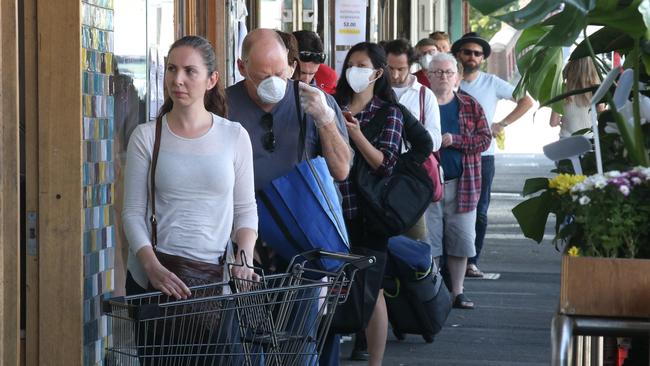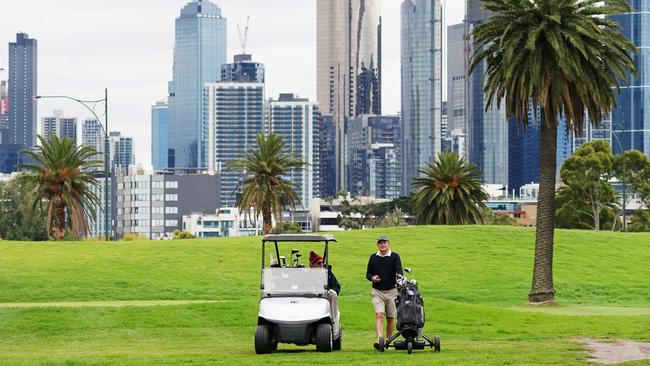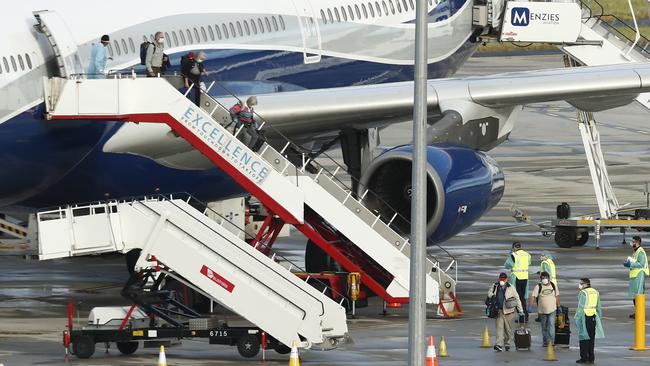Susie O’Brien: Ease some lockdown rules for our sanity
As soon as the time is right — and strict social distancing measures are adhered to — authorities should ease some restrictions that are starting to take a toll on people’s mental health, writes Susie O’Brien.

Susie O'Brien
Don't miss out on the headlines from Susie O'Brien. Followed categories will be added to My News.
With the COVID-19 death rate dropping and new infection rates slowing in Victoria, we now need to take care of our mental wellbeing as well as physical health.
As soon as the time is right, authorities should ease some restrictions that are starting to take their toll on people’s mental health.
As winter closes in, we deserve to have some small meaningful parts of our daily lives given back to us.
As long as strict social distancing measures are adhered to, I don’t see why we can’t visit family, go fishing in a remote spot, take kids for a drive on their L-plates or inspect a house we are thinking of buying.
It makes sense to allow people to do minor things that make a difference to them, but have a negligible impact on the spread of the virus.
Let kids go to playgrounds as long as there are only a few kids around.
Let us sit in a restaurant as long as we’re widely spaced.
Let family groups visit each other as long as old people are protected.
We don’t want to see a return to packed beaches, rowdy pub scenes or big wedding celebrations, but there’s no reason why people shouldn’t sit in public places such as parks if there’s no one else around.

Why shouldn’t we play golf as long as club house gatherings are banned?
Why shouldn’t we be allowed to drive a baby around to get him or her to sleep?
Why shouldn’t we drive to the mountains to ride a bike alone?
While I’ve argued in the past that some of these things shouldn’t occur, the lower infection rates and much better adherence to rules justify a softening of the rules.
Aussies are a law-abiding lot. Most of us have stuck to rigid edicts telling us how to live our lives with good faith. We’ve followed restrictions unthinkable a few weeks or months ago: no groups of more than two people, no playgrounds, no social engagements, no organised sport.
But the longer restrictions are in place, the greater the need to ensure they aren’t too onerous. While these strict measures have been needed, they are taking a heavy toll.
Low-risk activities that pose very little harm to anyone shouldn’t continue to be banned.
Rather than fining people for doing everyday things such as getting their car washed or laying flowers in a cemetery, why don’t police help businesses reopen under new modes of operations?
Most supermarkets have finally brought in more stringent social distancing measures, counting the number of people on site and offering places where people can move, stand and interact safely.
Why can’t the same approach be applied to restaurants and cafes? Playgrounds? Parks? Courts?
The low number of new cases and the decline in deaths have more to do with the testing regimen, enforced quarantine and closed borders than toddlers playing on slides or three friends running together.
Allowing a bit more interaction — within boundaries — would also address some of the goodwill lost by the heavy-handed and inconsistent approach taken by some Victoria Police officers.

Around my house, the bike paths and exercise tracks are chockers, so it makes sense to get in the car and find a less busy place for the kids to run, scoot or shoot hoops. But under current rules, it’s not allowed. Dog groomers are open, but dropping a dog off to be clipped is not allowed. Cemeteries are open but laying flowers is not allowed.
A few days ago, a man was fined for driving 40km to get a bottle of water. Maybe he was struggling under financial pressures and social isolation?
And maybe the two men fined for watching a movie in a car were two dads with young kids who desperately needed a break?
People are starting to buckle under the pressure of it all. It’s a worry because people are less likely to adhere to rules they think are pointless.
The outbreak at the Tasmanian hospitals and the arrival of Australians from Peru, India and Uruguay mean restrictions should not be lifted altogether.
We should not open our borders or ease travel restrictions and enforced isolation for those returning from overseas. But surely managing the 70 per cent of passengers on the Greg Mortimer cruise ship who have COVID-19 is a more pressing issue than keeping tabs on someone dropping their dog off for a haircut.
It seems bizarre that a few weeks ago I was calling for tougher rules. Back then, people wanted the worst of it over. But it seems as if the worst may not come, and so our expectations have changed.
As the weather closes in, we’re going to need more options for things we can do outside of our own houses. The longer it drags on, the more we need to take good care of each other and ourselves.
Susie O’Brien is a Herald Sun columnist

